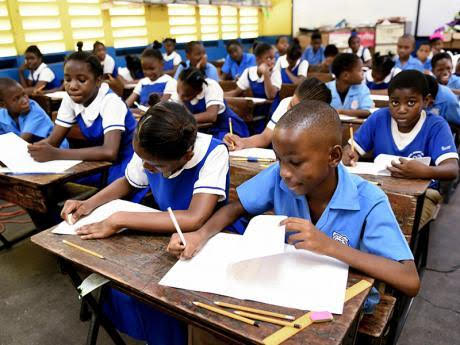
“Proud Boys,” “Oath Keepers,” “QAnon,” “3 percent,” “Boogaloo,” and “NSC-131” are some of the white racist extremist groups which were responsible for the attempted coup d’etat in Washington, DC on January 6, 2021. And though their actions on the day were objectionable — even treasonous — their speech is protected under the first Amendment of the US Constitution.
They comprise a voice from the political far right which is reflective of opinions and fears of a segment of the American society. Though people might have been stunned by their actions at the Capitol building, their kind has been around since the end of the Civil War. They are not likely to go away, and neither is the threat that they pose. And so, what if they had succeeded, or do manage to succeed in the future, what would this country and the world be like?
Had they succeeded in overthrowing the Government, replacing it with a more oligarchic and authoritarian form, would they have moved forward with their agendas completely unopposed by those in the country who do not share their views? There has been much talk in the media about the formidable threat posed by the white extremists to the degree that their opponents might not have an answer for it, or, if they did, that it would be an anaemic response accomplishing as much as waves breaking upon rocks by the seashore.
But, because such groups seem to be able to scream the loudest, and though images of their firepower are often compelling and intimidating, do such pieces on the political Chess board reveal a true picture of the state of affairs in the country, as it now exists, in terms of the balance of power? Is victory assured?
History is replete with examples of what looked great on paper for one side in a struggle only to be upset by the quirks, and by the unexpected twists and turns of the forces of history. George Washington’s Continental Army during the American War for Independence was outmatched by the might of the British Empire. And yet, the colonists won.
The Russian Imperial forces were routed by the rabble composed mostly of peasants, as was the case with the monarchy during the French Revolution many years before. And though the white extremists often paint themselves as victims, in danger of extinction, that image is often confused by ones where they are, as a “silent majority”, awaiting the right moment to reach the ascendancy.
The Japanese fired the first shot at the US in World War II, wreaking havoc at Pearl Harbour, but the US responded at Hiroshima and Nagasaki.
Not only should political analysts be careful about the threat posed by the white supremacists — one well documented by the FBI — but they ought not to ignore those forces amassed against them from the other side of the political spectrum. As no one should be careless by underestimating or overestimating the power of such extremist groups, caution should be employed in respect to the resolve and to the resourcefulness of their opponents.
Like the uncertain twists and turns of history nobody anticipated the defiance of those within the Trump Administration, even within the White House itself, who opposed what they considered to be threats against the Constitution and national security by the executive branch.
The splintering of the GOP is another case in point which has seen party stalwarts, including the late General Colin Powell, defecting from its ranks in numbers.
The United States has an indubitably long and detailed history of social protests, and of violent and bloody riots from its inception into the 21st century. The protests in the streets in the summer of 2020, for example, sparked by the public lynching of George Floyd and broadcasted in the international media is a case in point. There were between 15 million and 26 million who protested his death and that of other Afro-Americans. Others, perhaps with nobler motives than those behind the failed insurrection on January 6th, armed with their constitutional rights, have used their voices and, indeed, their bodies against powerful forces arrayed against them.
There were 20 million people who protested in support of “Earth Day” in 1970. The women’s march of 2017 saw between three million and over 5.5 million participants. The March on Washington for Lesbian, Gay, Bi-Equal Rights and Liberation in 1993 saw about one million people in the streets. Would a new regime inspired by fear, by hate, and by violence, therefore, be spared any dissidents?
In modern America what would a new civil war look like in comparison to that which raged between 1861 and 1865, causing the deaths of 620,000 soldiers out of 2.4 million soldiers? In a new iteration of such a war where would the geopolitical lines be drawn? With many communities of mixed races and cultures now in existence who would join the fray of such a tragedy, and what would the death toll look like, including the collateral damage of “civilian” men and women, of children, of the elderly and infirmed?
The Government runs the affairs of State with the taxes that it collects. When people are too busy shooting at their neighbours — ducking and covering in the streets — in a dystopian society reminiscent of Mel Gibson’s, Mad Max and The Road Warrior — would not there be a breakdown of public institutions and social services? What would be in place to repel any attacks from Russia or China? In fact, law enforcement and the military have been infiltrated by white extremists. Will confusion in the ranks see some aiding and abetting the enemy — undermining the efforts of real patriots?
What then of the US Constitution, and what then of the Bill of Rights? What then of the country’s place and its image as the leader of “the free world”? How would the other super powers respond to the chaos within, and to the prospects of a mad man or a mad woman attempting to use its nuclear arsenal against them?
Would this country, in such an event, pose such a threat to others in the international community that it would suffer from pre-emptive military strikes, trade embargoes or even the occupation of “peace keeping forces” akin to what happens in “troubled spots” of the world under the umbrella of the United Nations?
The country is now in turmoil despite a less than perfect, yet still largely traditional transfer of power. Why should anyone, with a modicum of logic and a sense of history, hold that a violent overthrow will have the opposite result? We have been hearing from the white nationalists, but not from everyone else.
In Apartheid South Africa a group of Afrikaners drove through the streets one day shooting, indiscriminately, at Black people. The way that they behaved suggested that they did not expect any resistance. However, their assessment of the times was not only flawed, it was fatal. Not only did Blacks return their fire, but executed them in the street on national television. The incident brought new urgency to the negotiations between the ANC, led by Mr Mandela, and the de Klerk Government.
In Hyde County, North Carolina, in the late 1960s, as Blacks engaged in non-violent protests over the closing of Black schools, they were intimidated by armed members of the Ku Klux Klan. Blacks armed themselves, confronted them and drove them off in a gunfight. With those incidents in mind, do we have a complete lay of the land today?
A civil war does not, necessarily, sound the death knell of a people. Order can be restored after interludes of great upheaval. After all, this country managed to survive its civil war, as did Spain from its internal conflict of 1936 to 1939. Such a war is not synonymous with a biblical apocalypse. Perhaps the challenge posed by the white nationalists is not the symptom of a terminal illness, but of another opportunity for growth.
It might be a chance for an assessment on how closely this country might have come to its noble ideals. Is it the proverbial “light on a hill”? Or, have the chickens come home to roost? Is its current form of government too destructive? Is it now time “…to alter or to abolish it, and to institute new Government….” according to the Declaration of lndependence?
To answer, we ought to check the balance books of its history, first, for any signs of progress that it might have made over the past 300 years as against anything untoward which has and which continues to plague it since its infancy.



